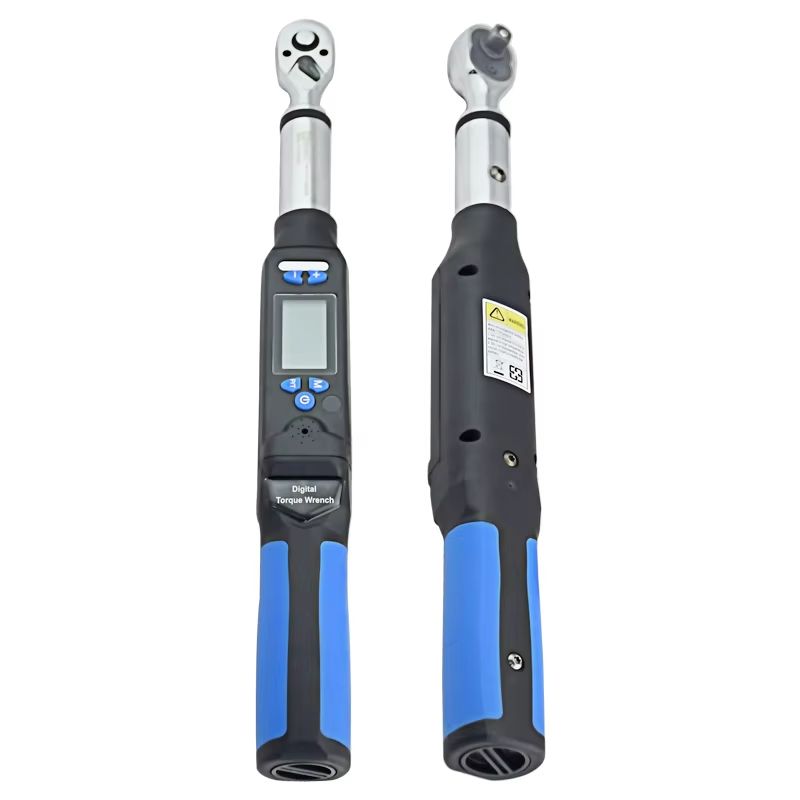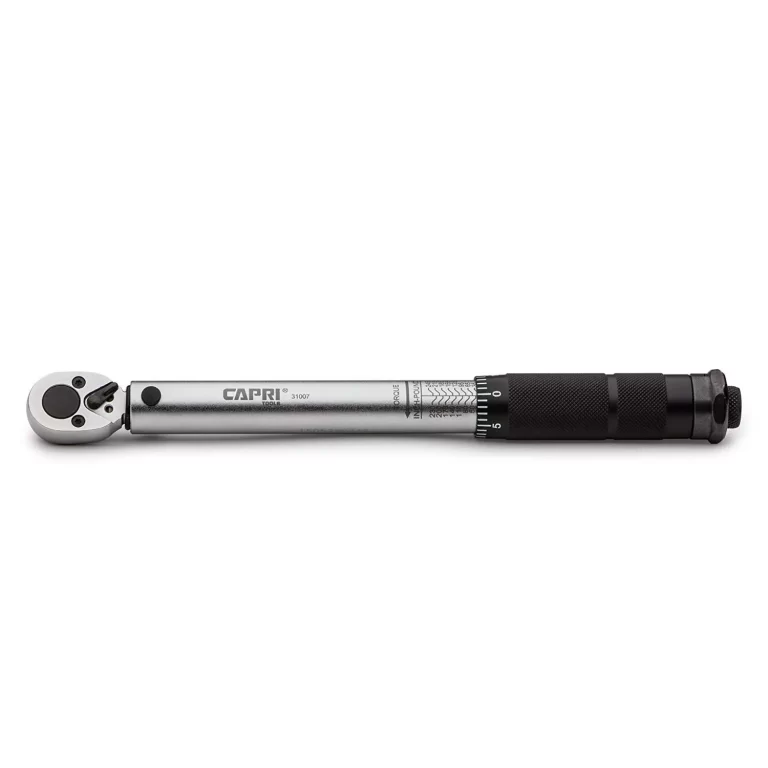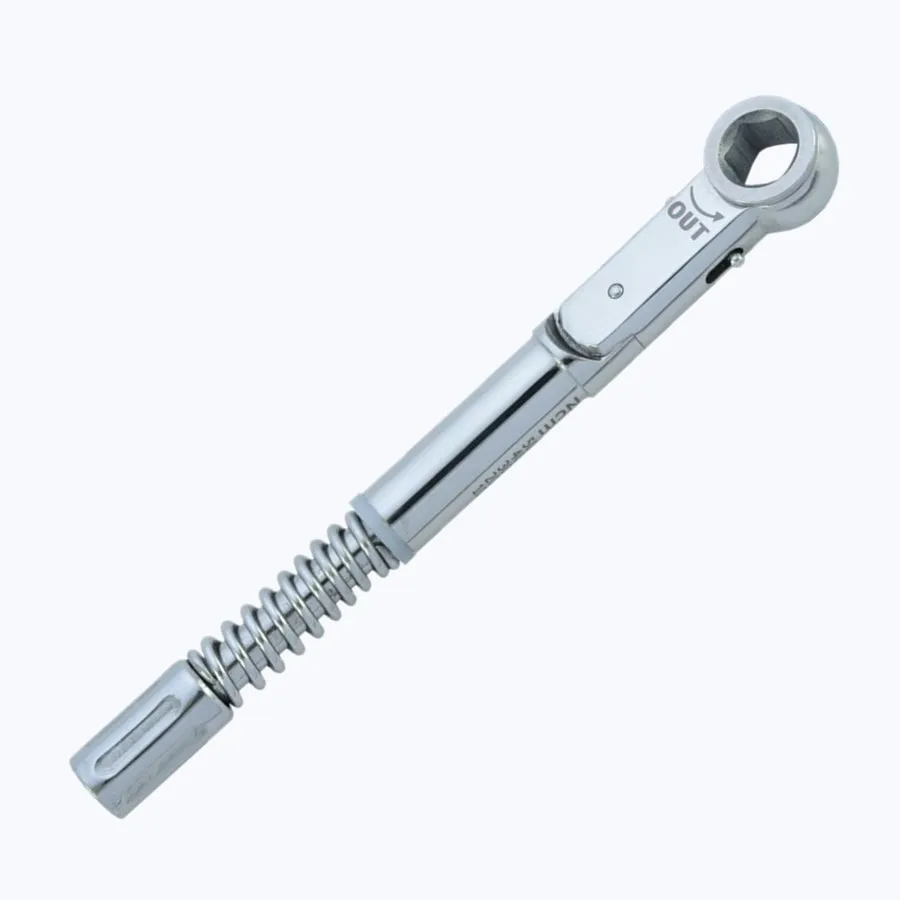
Finding the Best Torque Wrench: Top Recommendations
When it comes to automotive repairs, home projects, or any task requiring precise fastening, having the best torque wrench is essential. A torque wrench ensures that bolts and nuts are tightened to the manufacturer’s specifications, preventing over-tightening or under-tightening. This guide will help you understand what makes a torque wrench the best, how to choose the right one for your needs, and maintain it for long-lasting performance.
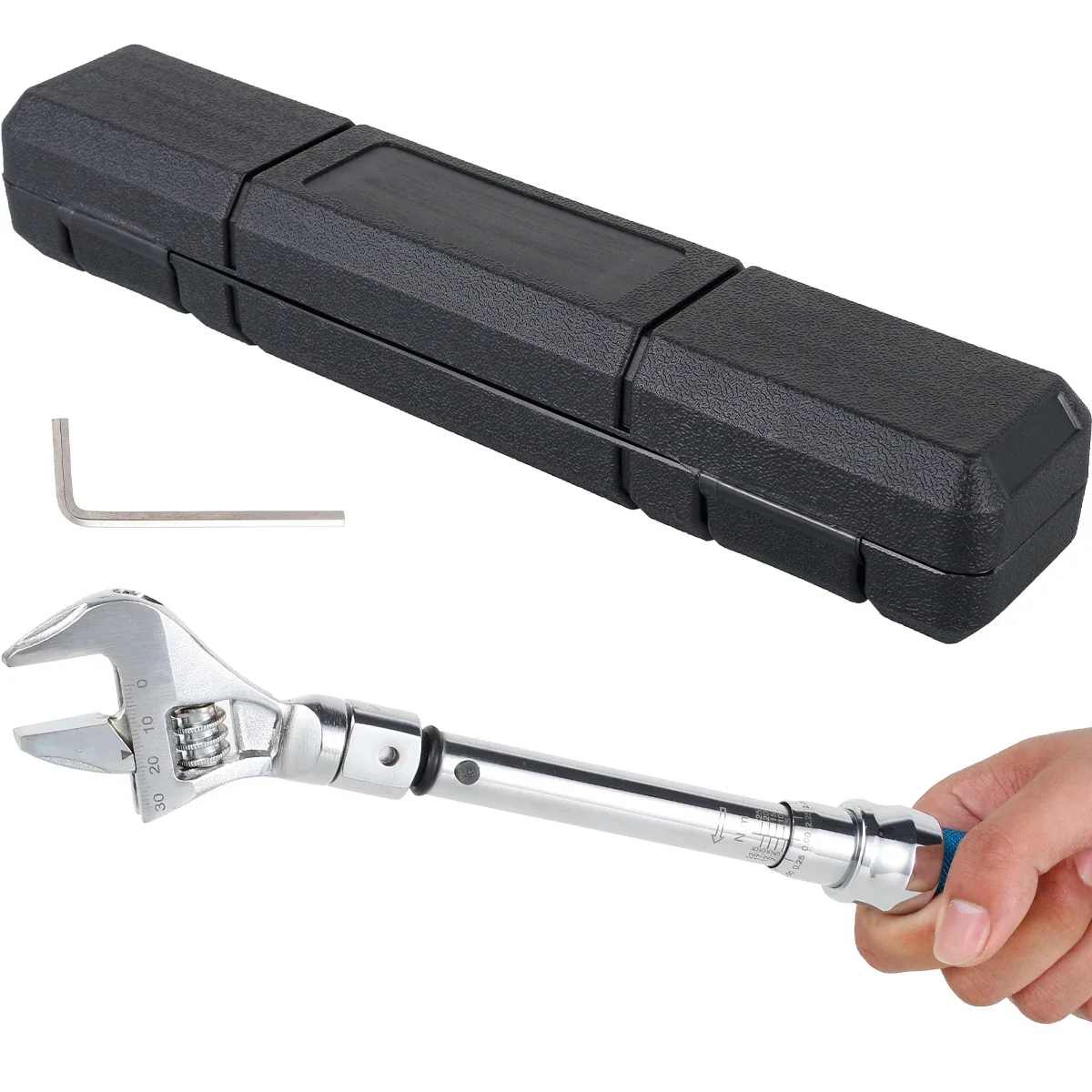 What is a Torque Wrench?
What is a Torque Wrench?
A torque wrench is a must-have tool for achieving precise tightness of fasteners. It provides accurate control over the amount of torque applied to bolts or nuts. This ensures connections are neither too loose nor too tight.
Definition and Functionality
A torque wrench is a precision tool designed to apply a specific torque to fasteners. Torque is the force required to rotate an object around an axis, such as a bolt. Using a torque wrench prevents over-tightening or under-tightening, which can damage components or lead to safety risks.
The tool comes with mechanisms to set and measure torque accurately. Some wrenches click when the desired torque is reached, while others display readings on a screen or scale. It is extensively used in automotive, construction, and machinery maintenance.
Types of Torque Wrenches
- Click-Type Torque Wrench: Popular for its reliability. Produces an audible click when the set torque is achieved. Ideal for general use in automotive and machinery repairs.
- Beam-Type Torque Wrench: Simple and affordable. Features a visible scale to indicate torque levels. It works best for casual projects.
- Electronic (Digital) Torque Wrench: Offers precise readings on a digital screen. It often includes advanced features like data storage and alerts. Perfect for professionals requiring high accuracy.
- Slip-Type Torque Wrench: Prevents over-tightening by slipping once the correct level is reached. Ideal for delicate applications.
Each type has its pros and cons, making it essential to select according to your needs. Choosing the best torque wrench depends on the application and required accuracy.
Why Choosing the Right Torque Wrench is Important
Choosing the best torque wrench is crucial for precision, safety, and efficiency. A proper torque wrench ensures fasteners are tightened accurately, preventing equipment failures and costly mistakes. Let’s explore the advantages of the right torque wrench and the risks of improper torque usage.
Benefits of a Proper Torque Wrench
- Prevents Over-Tightening: Reduces damage to bolts, threads, and connected components.
- Enhances Safety: Ensures critical assemblies, like automotive engines, remain secure.
- Improves Equipment Longevity: Minimizes wear-and-tear caused by excessive torque.
- Boosts Accuracy: Ensures precise torque levels for professional applications.
- Streamlines Work Efficiency: Eliminates guesswork and saves time during repairs and installations.
Using the best torque wrench provides confidence and reliability in both simple and demanding tasks.
Risks of Using Incorrect Torque Levels
- Component Damage: Over-tightening can crack or deform parts, leading to malfunctions.
- Safety Hazards: Loose bolts may result in accidents or equipment failures.
- Shorter Lifespan: Inconsistent torque affects the performance and durability of machinery.
- Operational Issues: Incorrectly tightened fasteners cause vibrations, misalignments, and inefficiencies.
- Costly Repairs: Fixing damaged equipment leads to additional expenses.
To avoid these risks, always invest in a torque wrench that matches your project needs. Proper torque levels are the foundation for secure and lasting connections.
 Key Features to Look For in a Torque Wrench
Key Features to Look For in a Torque Wrench
When selecting the best torque wrench, it’s important to focus on key features that ensure reliability, accuracy, and durability. These features help maximize performance in various applications.
Accuracy and Calibration
Accuracy is crucial for achieving the desired torque level. A high-quality torque wrench ensures precise measurements every time. Look for wrenches with a calibration certificate to verify their accuracy. Regular calibration is necessary for long-term reliability. Tools with easy read-outs, such as digital screens, often offer superior precision.
Torque Range
The torque range defines the wrench’s ability to handle different tightening tasks. Make sure the range fits your project requirements, whether for automotive repairs or machinery assembly. A wider range supports versatility across jobs. For example, automotive work may need torque levels between 20 to 150 foot-pounds.
Build Material and Durability
A well-built tool lasts longer and performs better under regular use. Look for wrenches made of high-strength materials like steel or chrome-vanadium. These materials resist wear, corrosion, and damage from frequent handling. Additionally, ergonomic designs with comfortable grips enhance usability and reduce strain during tasks.
Prioritize these features when choosing a torque wrench to ensure both performance and reliability.
Types of Torque Wrenches: Pros and Cons
Selecting the best torque wrench depends heavily on understanding the features of different types. Each type serves specific needs and comes with its own strengths and limitations. This section outlines the pros and cons to help you make an informed choice.
Click-Type Torque Wrenches
Pros:
- Produces a clear audible click when the desired torque is reached.
- Highly reliable for precise tightening in automotive and machinery tasks.
- Simple to use, even for beginners.
- Durable and widely available in various torque ranges.
Cons:
- Limited feedback beyond the click sound.
- Requires regular calibration for consistent accuracy.
- May not suit applications where visual torque measurement is preferred.
Beam-Type Torque Wrenches
Pros:
- Very affordable, ideal for casual or DIY users.
- Features a simple scale for visible torque measurement.
- Durable and has fewer moving parts, increasing reliability.
- No need for batteries or complex setups.
Cons:
- Less accurate compared to other types.
- Harder to use in tight spaces due to its size.
- Requires steady hands for accurate readings.
- Not ideal for professional or high-precision tasks.
Electronic (Digital) Torque Wrenches
Pros:
- Provides highly precise torque readings on a digital screen.
- Often includes advanced features like data storage, programmable settings, and alerts.
- User-friendly, offering visual and audible feedback.
- Perfect for professional use requiring high accuracy.
Cons:
- More expensive compared to other torque wrenches.
- Requires batteries, which need replacement.
- Delicate electronics may be susceptible to damage if dropped.
- Heavier than other types, which may affect usability.
Understanding these pros and cons will assist you in identifying the best torque wrench for your needs. Proper knowledge of each type ensures optimal performance and value.
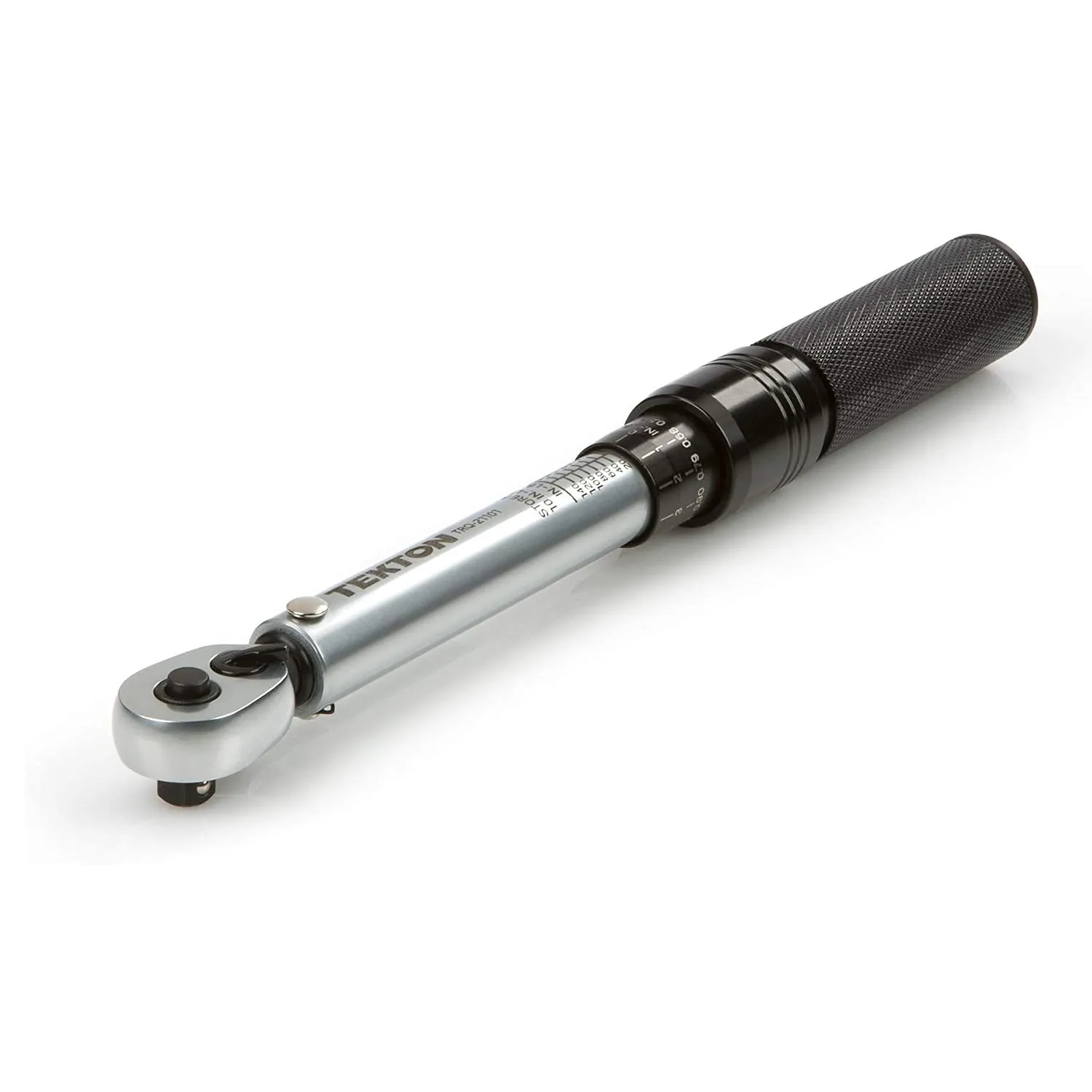 How to Choose the Right Torque Wrench for Your Needs
How to Choose the Right Torque Wrench for Your Needs
Selecting the best torque wrench for your needs depends on various factors. Understanding your specific requirements helps narrow down the options and ensures optimal performance.
Determining Your Application Requirements
Start by identifying the type of work you will perform. For automotive repairs, look for wrenches with a torque range of 20 to 150 foot-pounds. For machinery assembly or delicate items, prioritize wrenches with lower torque ranges for precision. Consider the workspace as well—tight spaces may require compact tools, such as click-type wrenches.
Evaluate whether you’ll need advanced features. Electronic torque wrenches provide precise readings and programmable settings, ideal for professional projects. For simple tasks, a beam-type torque wrench may suffice.
Comparing Brands and Models
Compare various brands to assess quality, features, and price. Trusted names like CDI, Tekton, and GearWrench offer reliable tools with consistent performance. Review the materials used, such as steel or chrome-vanadium, for durability.
Look into calibration reliability. High-quality models often include calibration certificates, ensuring accuracy. Opt for tools with additional features, like comfortable grips or easy-to-read scales, to enhance usability while maintaining precision.
Evaluating User Reviews and Recommendations
User feedback offers valuable insights into real-world performance. Read reviews to learn about durability, ease of use, and precision. Pay attention to recurring issues, such as calibration drift or poor build quality. Online forums and professional tool reviewers can provide trustworthy advice.
Seek recommendations suited to your specific task. For instance, professionals may recommend high-end digital models, while DIY users might favor affordable beam wrenches. Balancing user feedback with your own needs ensures you make the right decision.
By considering your application, comparing brands, and leveraging user reviews, you’ll choose the best torque wrench for your needs.
Proper Torque Wrench Maintenance and Usage
Maintaining and using your torque wrench correctly extends its lifespan and ensures optimal performance. This section provides essential tips on cleaning, calibration, and safety during usage.
Cleaning and Storage Tips
- Wipe After Use: Clean the wrench with a soft, dry cloth after every use to remove dirt or grease.
- Avoid Harsh Chemicals: Do not use solvents or abrasive cleaners that may damage the finish or components.
- Store Safely: Keep the wrench in its case to protect it from dust, moisture, and accidental impacts.
- Release Torque Setting: Set the wrench to its lowest torque setting before storing to prevent spring fatigue.
- Keep in Dry Place: Store in a cool, dry environment to avoid rust or corrosion.
Proper cleaning and storage practices will ensure your torque wrench remains functional for years.
Calibration Guidelines
- Calibrate Regularly: Calibrate the wrench at least once a year or after 5,000 uses, whichever comes first.
- Seek Professional Services: Use certified calibration services to ensure accuracy.
- Test Accuracy: If the wrench provides inconsistent results, it may require immediate recalibration.
- Avoid Overloading: Do not exceed the maximum torque range, as this can affect calibration.
- Follow Manufacturer’s Instructions: Adhere to brand-specific calibration guidelines for best results.
Regular calibration maintains the accuracy and reliability of your torque wrench over time.
Safety Measures During Use
- Read Instructions: Familiarize yourself with the wrench’s manual before use to prevent misuse.
- Use Correct Torque Settings: Set the torque according to the job requirements to avoid over or under-tightening.
- Avoid Using as a Hammer: Do not misuse the wrench to prevent internal damage.
- Hold Properly: Grip the handle securely to apply torque evenly without slipping.
- Test in Controlled Setting: Practice in a safe environment before applying to critical components.
Following these safety tips ensures not only the tool’s longevity but also your own safety on every task.
 Recommended Brands and Models for Different Budgets
Recommended Brands and Models for Different Budgets
When choosing the best torque wrench, budget and application matter. Different brands cater to unique needs and price ranges.
Best Torque Wrenches for Automotive Use
Automotive tasks need torque wrenches with durability and precision. These brands are ideal for such applications:
- CDI Torque Products: Known for durable, professional-grade tools. Offers high accuracy for heavy-duty tasks.
- Tekton Torque Wrenches: Affordable with reliable performance. Popular for routine automotive maintenance.
- GearWrench Digital Torque Wrenches: Provides digital torque readings and alerts. Ideal for precise automotive repairs.
Choose torque wrenches with a wide range, like 20–150 foot-pounds, for versatile automotive jobs.
Affordable Options for DIY Projects
DIY users often seek affordable tools that balance functionality and cost. These brands provide value:
- Performance Tool Beam Wrenches: Simple yet effective. Perfect for occasional home or garage use.
- Craftsman Torque Wrenches: Trusted, budget-friendly tools suitable for various DIY projects.
- Denali Click-Type Wrenches: Offers basic features at a low price. Great for non-intensive tasks.
These options ensure accuracy without overloading your budget for casual DIY needs.
High-End Professional Choices
For precision and frequent use, professionals need top-tier torque wrenches. Consider these brands:
- Snap-on Electronic Torque Wrenches: Premium tools with advanced features. Designed for technicians requiring high accuracy.
- Norbar Torque Tools: Superior performance for industrial applications. Offers customizable range and reliable calibration.
- Proto Torque Wrenches: Built for intense use in mechanical and construction fields.
High-end models provide extra features like memory storage, durable build, and seamless adjustments.
Selecting the right brand and model ensures efficiency and accuracy across different budgets and tasks.
 Frequently Asked Questions About Torque Wrenches
Frequently Asked Questions About Torque Wrenches
What is the best type of torque wrench for beginners?
For beginners, a click torque wrench is ideal due to its ease of use and clear audible feedback when the desired torque is reached. It offers good accuracy without the complexity of digital models.
How often should I calibrate my torque wrench?
Generally, it’s recommended to calibrate your torque wrench once a year or after every 5,000 uses. However, heavy or frequent use may require more frequent calibration. Always follow the manufacturer’s guidelines.
Can I use a torque wrench for tightening screws?
No, torque wrenches are designed specifically for bolts and nuts, not for screws. Using them on screws can damage the tool and result in inaccurate torque application.
What is the difference between metric and imperial torque wrenches?
Metric torque wrenches measure torque in Newton-meters (Nm), while imperial wrenches use foot-pounds (ft-lbs). Choose the type based on the standards used in your region or your specific application needs.
How do I store my torque wrench properly?
Store your torque wrench in a clean, dry place, preferably in a protective case or pouch. Keep it away from moisture and extreme temperatures to maintain its accuracy and longevity.
Conclusion
Finding the best torque wrench is crucial for achieving precision and reliability in your projects. Whether you’re a professional mechanic or a DIY enthusiast, investing in a high-quality torque wrench ensures accurate torque application, enhances efficiency, and provides long-term value. By understanding the different types, key features, and proper maintenance techniques, you can select the perfect torque wrench to meet your needs. Embrace the benefits of owning the best torque wrench and elevate the quality of your work with every use.
